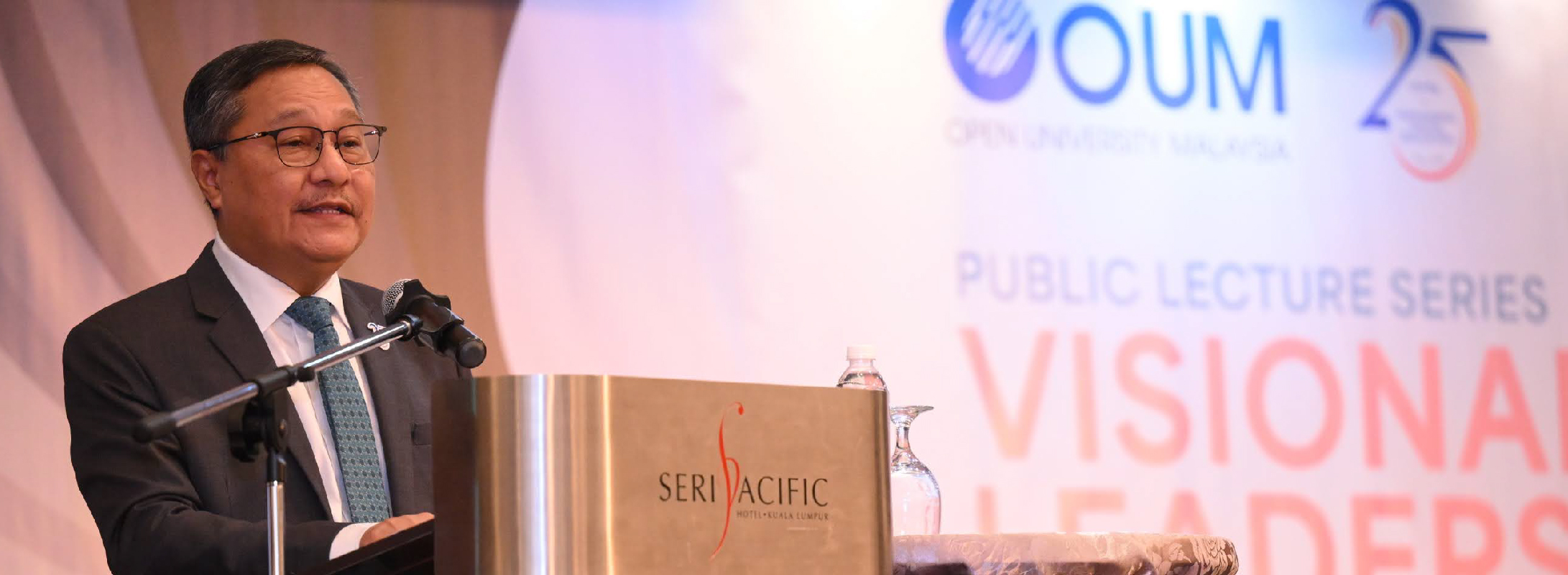
YBhg Prof Dato’ Dr Ahmad Izanee Awang, OUM President/Vice-Chancellor, opened the one-day Public Lecture Event on 6 August 2025 with a brief but meaningful welcoming speech.
Addressing the diverse audience at Seri Pacific Hotel, Dato’ Izanee introduced OUM as Malaysia’s first full-fledged open university. He shared that OUM was established in 2000, and has since enrolled more than 250,000 learners and produced more than 120,000 graduates.
He said that OUM’s motto, “University for All”, reflects the University’s enduring commitment to inclusivity, and noted how this spirit also inspired OUM’s 25th anniversary theme, “Humanising Digital Education,” which underscores OUM’s mission to combine digital technology with sound pedagogy to expand access to quality education.
Dato’ Izanee emphasised that OUM’s integration of digital tools aims not only to enhance teaching and learning but also to reduce participation barriers – an endeavour the University pledges to hold steadfast.
He especially thanked the Centre for Digital Education Futures (CENDEF), OUM’s think tank, for organising this inaugural event and hosting the five Global Fellows who, in their lectures, addressed critical questions about educational leadership in the digital age, the reimagining of leadership structures, and potential of digital education to disrupt rather than reinforce inequality.
Concluding his address, Dato’ Izanee thanked the audience for their participation and expressed hope that the discussions would inspire more human-centred approaches to education in an increasingly digital world.

inspired is OUM’s not-for-profit popular journal on the 3Ps – practice, policy and philosophy – of open, distance, and digital higher education (ODDE). Published three times a year, it engages global scholars, policymakers, practitioners, learners, and other stakeholders, as well as a general readership seeking the latest insights and perspectives on ODDHE.
Menara OUM, Block C, Kelana Centre Point, Jalan SS7/19,
Kelana Jaya, 47301 Petaling Jaya, Selangor, Malaysia
+603-7801 1800 (General Line)
inspired@oum.edu.my

Copyright © Open University Malaysia 2018 – 2025 inspired All Rights Reserved. No part of inspired may be reproduced in any form or by any means without the written consent of the Editor of inspired.